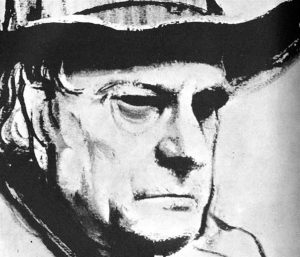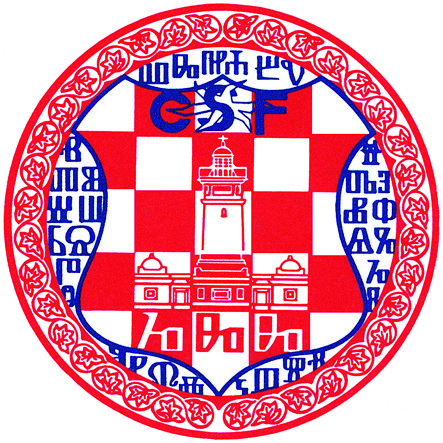
About Tin Ujević
The Croatian poet Augustin (Tin) Ujević (1891-1955) is one of the finest Southern Slav lyric poets and one of the great poets of Europe in the first half of the twentieth century. While Tin Ujević’s poems are hardly known in English, they are loved in his native Croatia and throughout the South Slavic-speaking lands.
Born in 1891 in Vrgorac, a small town in the Dalmatian hinterland, Tin grew up in Imotski and Makarska, and attended the classical gymnasium in Split. His language and sensibility are indelibly marked by the rugged beauty of the Dalmatian littoral, that narrow, sunbaked, rocky coastline, backed by mountains, facing out over the Adriatic sea and its islands.
Throughout his life, he lived simply. Well-known as an anarchic bohemian, he was a frequenter of bars and cafés, and always poor. Typical photos show him wearing a battered and ramshackle trilby cocked at a lopsided angle.
Although Tin’s major achievement is as a lyricist, his oeuvre is much broader than lyric alone. He was a writer of profound and discerning intellect, broad and capacious interests, inquisitive appetite and eclectic range. His Collected Works number sixteen volumes, including poems in many forms, from free verse to the Whitmanesque verset, prose-poems, essays, criticism, aphorisms, a book of thoughts and jottings compiled into a personal ‘encyclopedia’, and translations of fiction, poems and plays by authors as various as Poe, Whitman, Verhaeren, Rimbaud, Gide, Conrad, Meredith and Benvenuto Cellini, among others.
***
From Cry of a Slave (1920)
Daily Lament
How hard it is not to be strong,
how hard it is to be alone,
and to be old, yet to be young!
and to be weak, and powerless,
alone, with no one anywhere,
dissatisfied, and desperate.
And trudge bleak highways endlessly,
and to be trampled in the mud,
with no star shining in the sky.
Without your star of destiny
to play its twinklings on your crib
with rainbows and false prophecies.
– Oh God, oh God, remember all
the glittering fair promises
with which you have afflicted me.
Oh God, oh God, remember all
the great loves, the great victories,
the wreaths of laurel and the gifts.
And know you have a son who walks
the weary valleys of the world
among sharp thorns, and rocks and stones,
through unkindness and unconcern,
with his feet bloodied under him,
and with his heart an open wound.
His bones are full of weariness,
his soul is ill at ease and sad,
and he’s neglected and alone,
and sisterless, and brotherless,
and fatherless, and motherless,
with no one dear, and no close friend,
and he has no-one anywhere
except thorn twigs to pierce his heart
and fire blazing from his palms.
Lonely and utterly alone
under the hemmed in vault of blue,
on dark horizons of high seas.
Who can he tell his troubles to
when no-one’s there to hear his call,
not even brother wanderers?
Oh God, you sear your burning word
too hugely through this narrow throat
and throttle it inside my cry.
And utterance is a burning stake,
though I must yell it out, I must,
or, like a kindled log, burn out.
Just let me be a bonfire on
a hill, just one breath in the fire,
if not a scream hurled from the roofs.
Oh God, let it be over with,
this miserable wandering
under a vault as deaf as stone.
Because I crave a powerful word,
because I crave an answering voice,
someone to love, or holy death.
For bitter is the wormwood wreath
and deadly dark the poison cup,
so burn me, blazing summer noon.
For I am sick of being weak,
and sick of being all alone
(seeing I could be hale and strong)
and seeing that I could be loved),
but I am sick, sickest of all
to be so old, yet still be young!
